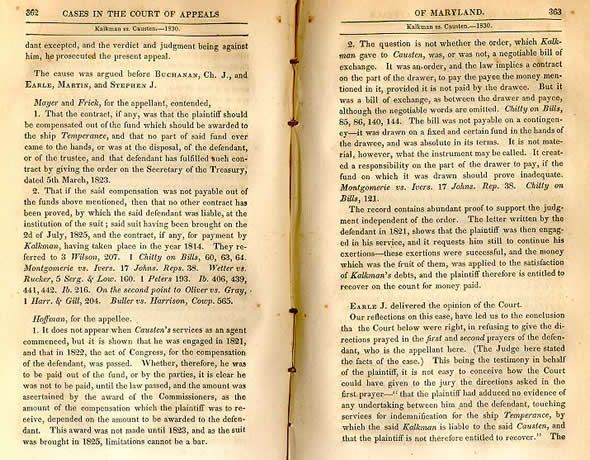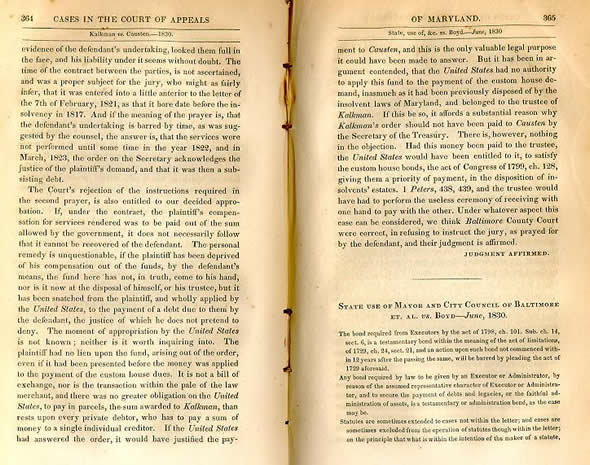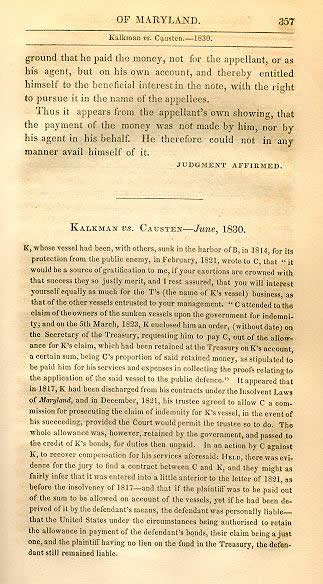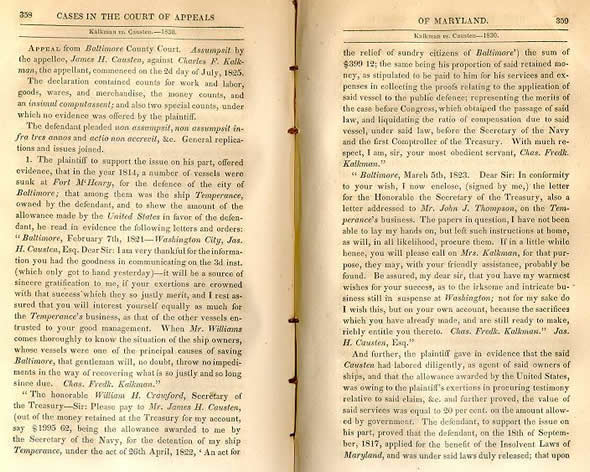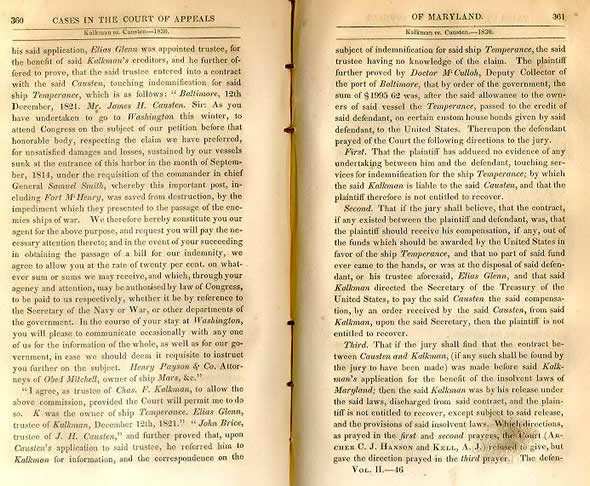
David Hoffman and the Science of Jurisprudence
Maryland Court of Appeals Case, 1830
1830- Hoffman was already a well respected
member of the Baltimore bar at the time he undertook his first
teaching appointment at the University.(1) The exact
number of lower court cases that he was associated with, however, is difficult
to identify. An examination of the various reporters published in Maryland
between 1812 and 1854, along with a search of the Westlaw©
database,revealed eight Maryland cases (below)in which Hoffman
is clearly identified as one of the participating attorneys. Included here
is the text of one these cases - Kalkman v. Causten,
2 Gill and Johnson 365 (1830), a case that dealt with who should be held
responsible for paying an attorney his fee when the original parties to
the contract had gone bankrupt.In addition to his Maryland practice,
Hoffman was also active before the U.S. Supreme Court,
handling a variety of cases most of which dealt with maritime insurance
and admiralty issues.(2)
In between trying cases and working on his legal treatises, Hoffman contributed
to the legal journals published in the United States.(3)
Intensely interested in reforming the law, Hoffman was an early supporter
of the codification movement and urged the adoption of Bentham-like codes
as a means of establishing a unique American system of law.(4)
In 1846 Hoffman also proposedto begin anew his efforts to teach
law using his methodology. Curiously he planned to run the schoolnot as a university effort but as a more traditional, apprentice like
program.(5) Finally, surviving letters to Justice
Story and fellow Marylander Virgil Maxcy suggests that Hoffman maintained
regular communication with his colleagues in the legal community even
after he moved on to other non-legal projects.(6)
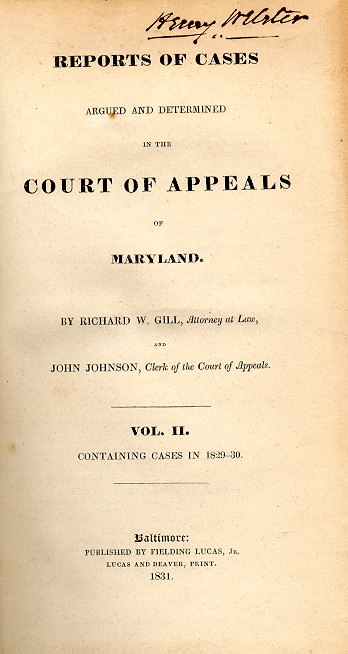
| Maryland Cases
|
Notes
1. Maxwell Bloomfield, "David Hoffman and the Shaping of
a Republican Legal Culture," Maryland Law
Review, 38 (1979): 678-679, 683. [return to text]
2. See: Chace against Vasquez, 24 U.S. 429 (1826),
The Arrogante Barcelones, 20 U.S. 496 (1822) and
Chirac v. Reinecker, 27 U.S. 612 (1829); also, Peter Gustier,
Memorial
and argument in the case of the
ship Blaireau, praying a return of tonnage and duties, erroneously
paid in1803: addressed to the Senate of
the United States (Baltimore: J.D. Toy, 1826).
3. [David Hoffman], "Construction of a Power of Attorney,
and of a Deed," American. Jurist & Law
Magazine, 3 (1830): 52. [return to text]
4. Charles M. Cook, The American Codification Movement:
A Study of Antebellum Legal Reform
(Westport: Greenwood Press, 1981). 72.
5. Eugene Cordell, University of Maryland, 1807-1907.
(New York: The Lewis Publishing Co., 1907),
347.
6. David Hoffman, Letter to Joseph Story, 1832. Joseph
Story Papers, The Massachusetts Historical Society. [return
to text]
